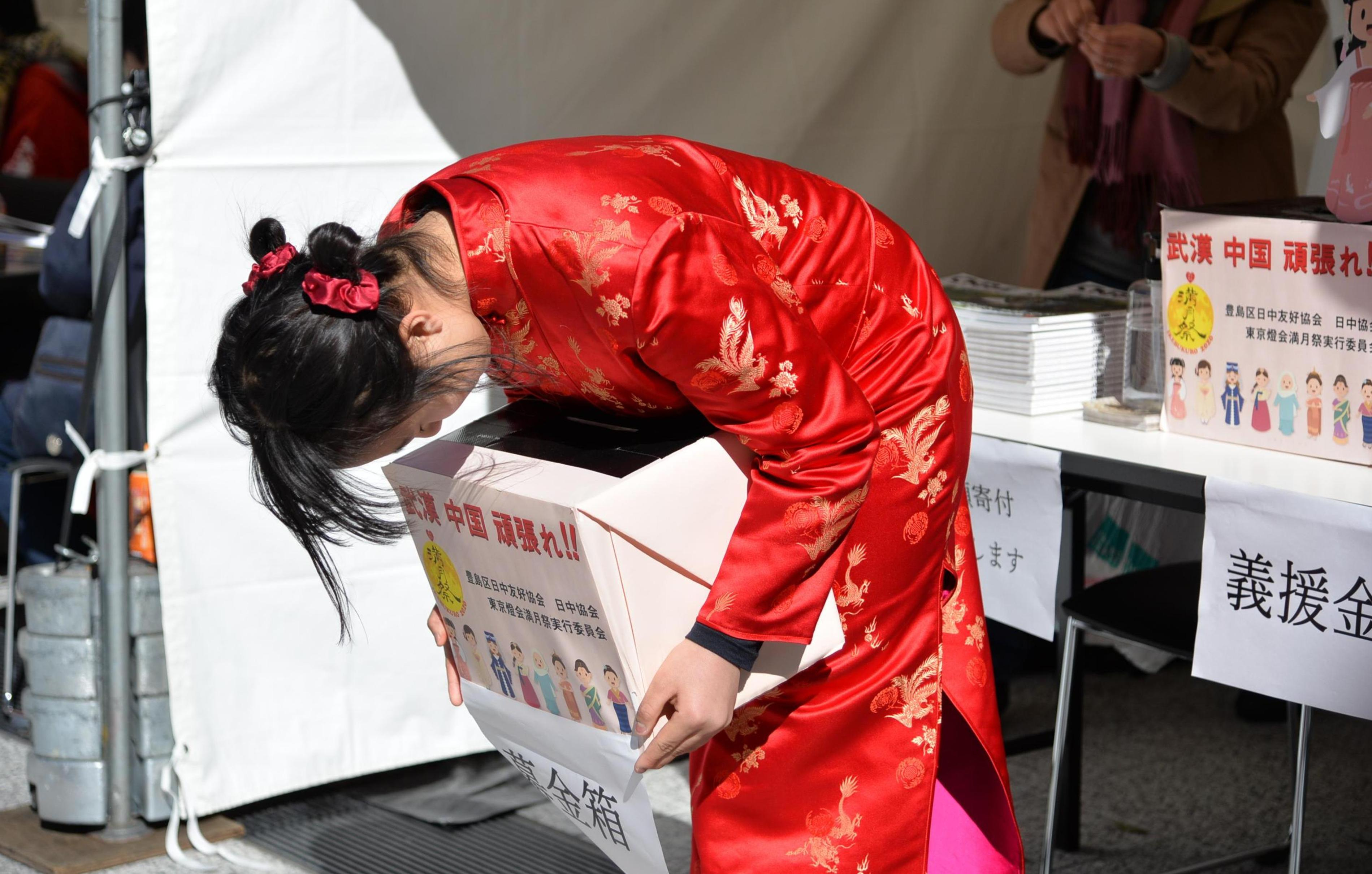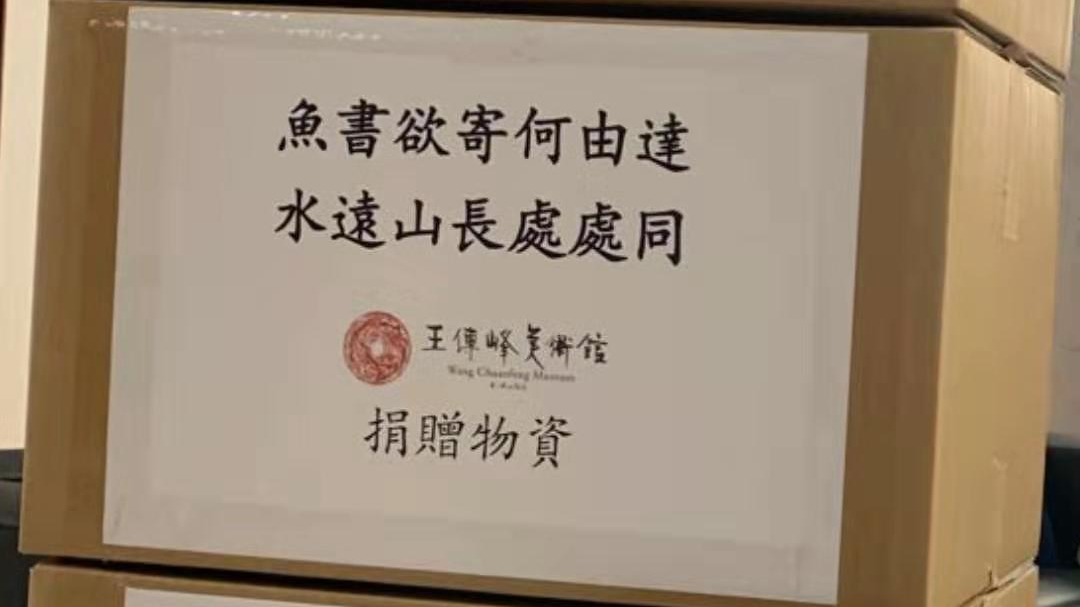On Thursday, the Japanese health ministry announced that one staff member of Japan's Ministry of Health, Labor and Welfare department and one from the Japanese cabinet contracted the novel coronavirus while working on the Diamond Princess cruise ship.
As for now, two passengers have died of COVID-19, and there are 621 confirmed cases on the ship among the approximately 3,700 passengers and crew members.
The Embassy of the People's Republic of China in Japan made a statement that China has sent a batch of nucleic acid testing kits to Japan's National Institute of Infectious Diseases, and "China is ready to continue to provide assistance to the Japanese side within its capacity."
The headline of the hundreds of people infected virus on the Diamond Princess cruise ship off Japan fueled public anxiety. Masks and other medical equipment are in increasingly short supply in Japan as the number of infections from COVID-19 has increased there.
On Tuesday, four boxes containing some 6,000 surgical masks disappeared from a locked storage facility at the Japanese Red Cross hospital in the western port city of Kobe.
The shortage of face masks in Japan has also begun to affect medical institutions as NHK news reported that the Navitas Clinic, which has multiple offices in and around Tokyo, was told by its medical equipment wholesaler that "it was out of all anti-infection products, including masks and antiseptic solutions."

A Japanese girl wearing a red Chinese cheongsam bows deeply to passers-by with a donation box in hands to raise money to help those in China affected by the virus on the Chinese Lantern Festival in Tokyo, Japan, on February 8, 2020. /Xinhua
A Japanese girl wearing a red Chinese cheongsam bows deeply to passers-by with a donation box in hands to raise money to help those in China affected by the virus on the Chinese Lantern Festival in Tokyo, Japan, on February 8, 2020. /Xinhua
Some people in Japan drove hundreds of miles overnight to buy extra boxes of masks, while others queued in the freezing cold to buy more protective suits. Some of these individuals are Chinese people, living and studying in Japan, reportedly getting paid to hoarding masks to sell for an increased price.
Chinese people in Japan have since contacted the news station to say that they were collecting these medical supplies to ease the more serious shortages in virus-struck cities in China.
The Foreign Minister of China, Geng Shuang expressed gratitude to Japan for helping China since the outbreak on Monday, and expressed the willingness to share information and experience with the country in prevention and control.
Since the outbreak, batches of medical supplies have arrived in China from Japan by both governmental and civilian methods.
According to the Union of Chinese Residing in Japan, more than 70 affiliated associations and chambers raised donations and collected medical supplies including masks, protective clothes, goggles and gloves, amount 39.84 million yen (about 363,000 U.S. dollars) in only two weeks.
Uplifting Chinese-language verses were written on the boxes of masks donated by a Japanese institution to China like "Although we are in different places, we are under the same sky." This raised the discussions on Chinese social media about the deep and profound connections between the Chinese and Japanese cultures.
Related readings:
How a message of encouragement from Japan made Chinese question their own appreciation to Mandarin
Japanese family goes the extra mile to collect masks for China

Photo taken on Feb. 14, 2020, shows the medical supplies donated by renowned Chinese artist Wang Chuanfeng, who currently lives in Japan, to help fight the novel coronavirus in China. /Xinhua
Photo taken on Feb. 14, 2020, shows the medical supplies donated by renowned Chinese artist Wang Chuanfeng, who currently lives in Japan, to help fight the novel coronavirus in China. /Xinhua
Japan's Oita Prefecture, a sister prefecture of Wuhan, took the lead in donating after the outbreak, sending 30,000 masks, 600 sets of protective clothing, and 400 goggles to the city on January 27. The dozens of boxes containing the aid bore the message "Keep fighting, Wuhan" in Chinese characters.
Since then, other Japanese cities have taken action to support China's battle against the epidemic. The city of Mito donated 50,000 masks to its Chinese sister city Chongqing. Okayama donated 22,000 face masks to its sister city Luoyang. "Come on, China! Come on, Luoyang! The people of Okayama support you!" read the Chinese characters written on the boxes.
Chinese associations and chambers of commerce in Kyushu and Okinawa have also issued initiatives, urging donations from overseas Chinese to support the prevention and control of the epidemic back in China.
In only a few days, roughly 280,000 surgical masks, over 1,100 protective suits, and more than 30,000 bottles of disinfectant and disinfectant towels were gathered.
Last week, the ruling Liberal Democratic Party of Japan (LDP) said it will deduct 5,000 yen (45.43 U.S. dollars) from the March salary of every LDP parliamentarian and donate it to support China's fight against the outbreak, a sum totaling two million yen (18,170 U.S. dollars).
Chinese Foreign Ministry spokeswomen Hua Chunying stressed that the heartwarming gestures from Japan have caught the attention of all Chinese people, and "we will not forget about their empathy, understanding and support during this hard time of China."